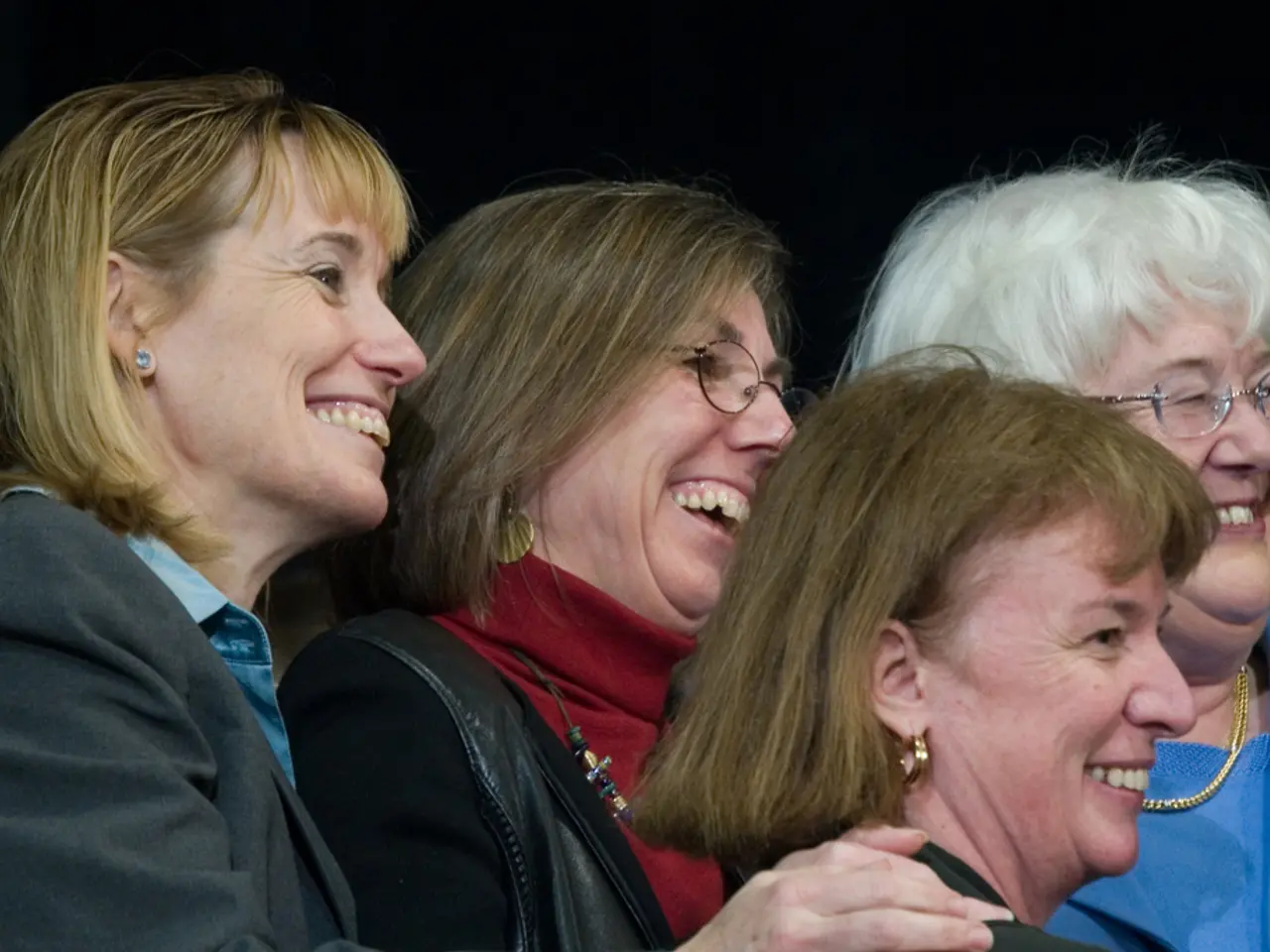Struggles of the elderly in adapting to digital advancements
In today's digital age, seniors stand to gain a great deal from embracing technology. Whether it's staying connected with loved ones, staying informed, or accessing online services, the benefits are numerous. However, a significant challenge lies in the fact that more than 67% of people born before the era of new information and communication technologies suffer from digital illiteracy.
This digital illiteracy is compounded by the fact that digital tools are not always adapted to seniors. With complex user interfaces and small characters on screens, these devices can be difficult for seniors to navigate, especially those with acute visual impairments, as 24% of seniors have compromised vision that makes the distinction of small characters challenging.
To address this issue, promoting a more inclusive digital society requires addressing the needs of seniors in digital education. Fortunately, numerous initiatives are underway to help seniors overcome these challenges. Community and associative workshops are offered by communes for seniors to learn and practice digital device usage, fostering social learning and mutual support. Intergenerational assistance is often provided in these workshops, with young people supervising the elderly.
Many libraries also offer initiation workshops to their users. For those who may not have access to these resources, free devices like France Services Digital Advisors and Emmaüs Connect workshops are available to help seniors with their digital transition. These workshops can be found by consulting the town hall or local Maison des Jeunes et de la Culture (MJC) websites.
Organizations offering specialized workshops to support older adults in using digital devices include the Seniorenbüro West of the AWO KV Leipzig-Stadt e.V., FrauenComputerZentrumBerlin, the Polizeisportverein Rostock, and initiatives linked to the BAGSO project "KI für ein gutes Altern," providing various learning sites and workshops across Germany. Local workshops like those in Weistrach focus on digital skills and internet security for seniors.
The contemporary technological landscape is constantly evolving, making it difficult for those not constantly immersed in the digital universe to keep up. To ease this burden, digital technology providers should consider the specific needs of the elderly in the design of their devices, such as simpler, more intuitive user interfaces and customization options for character size.
The digitalization of public services has increased during the health crisis, with many administrative procedures now needing to be carried out online. It is essential to take into account the specific needs of seniors to make digital technologies more accessible to the elderly public. It is crucial to provide seniors with the resources and support they need to adapt to technological changes.
Seniors often feel a profound sense of helplessness in the face of the use of digital devices. However, with the right resources and support, they can overcome these challenges and reap the benefits of a connected and technologically advanced society. By addressing the needs of seniors in digital education, we can create a more inclusive digital society for all.








